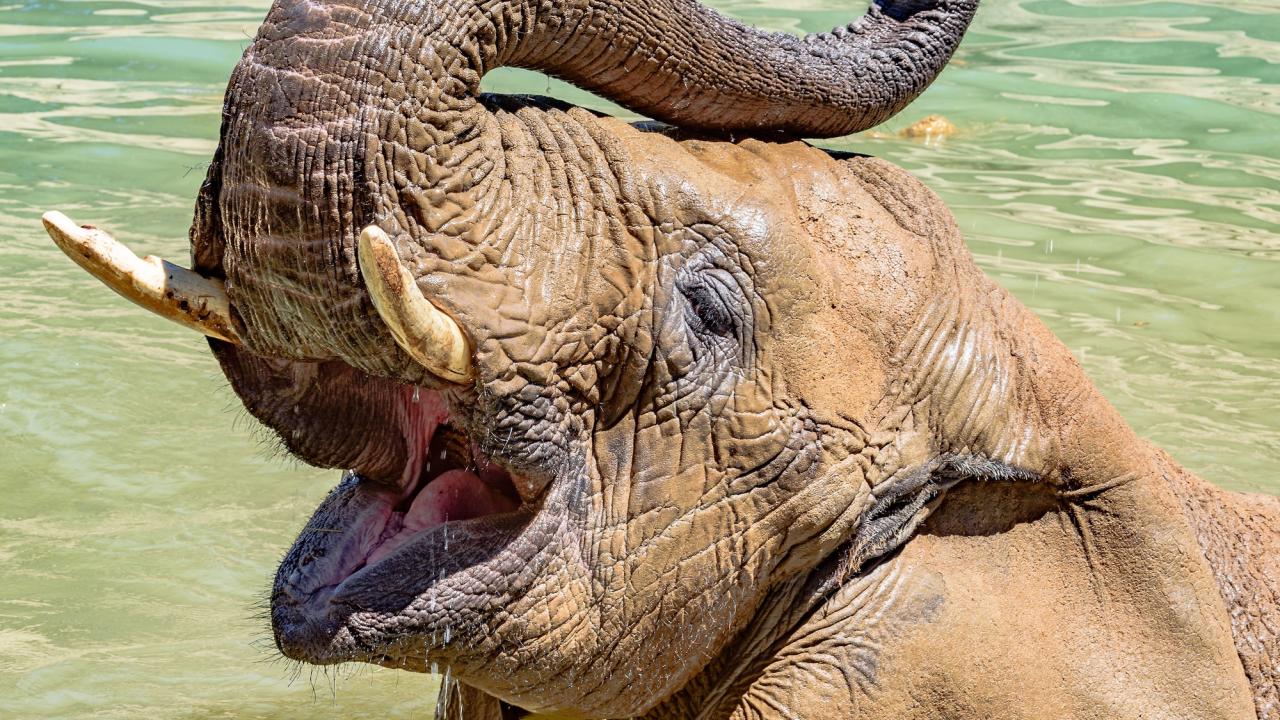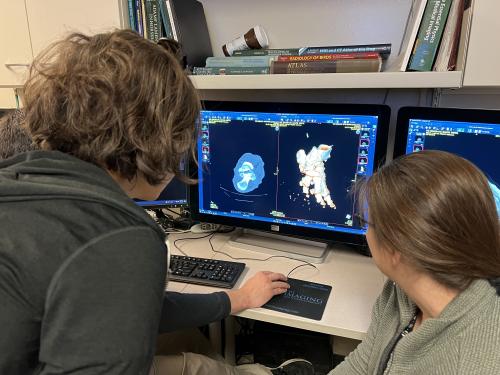
Lisa, the Oakland Zoo Elephant, Continues to Teach After Death
Lisa, the Oakland Zoo’s 46-year-old African elephant, was humanely euthanized last week after years of chronic and degenerative health issues. She was brought to the UC Davis School of Veterinary Medicine for a necropsy to look for any other underlying conditions, examine the arthritis in her front limbs, and to collect tissue samples—including stem cells that could be used to inform caretakers on healing and pain-relieving treatment for other elephants.
Lisa came to the zoo in 1979, and her decades-long residency deeply impacted her dedicated keepers, veterinary team, staff, volunteers, and millions of guests. She was one of only sixteen African elephants over the age of forty in AZA-accredited zoos. Her geriatric years brought on several age-related afflictions including ongoing eye ulcers, progressing degenerative arthritis, foot and nail lesions, and in the past few weeks, ventral edema causing excessive fluid retention in her abdominal skin which then caused internal and external vaginal ulcers.

Part of her medical care plan over the past year had involved cutting-edge stem cell procedures in partnership with researchers and veterinarians from Michigan State University. UC Davis’s zoological medicine resident, Dr. Tess Rooney, participated as well. The procedures involved infusing stem cells from a healthy elephant into Lisa’s bloodstream in hope of alleviating her arthritic inflammation, restoring cartilage, and easing her general discomfort. While Lisa showed signs of improvement from the stem cell procedures with some improved mobility, her limbs and joints remained quite stiff and continued declining in the winter months.
Her care team hopes that the tissue samples and CT images taken as part of the necropsy will help inform the care of captive elephants in the future. Even in death, Lisa continues to make an impact by allowing the pathology team at UC Davis to learn more about elephant anatomy and conditions affecting this incredible species.
We will miss seeing you playing in your pool, Lisa, and enjoying those leftover pumpkins after Halloween every year. Thank you for all you have taught us.
Press release from Oakland Zoo.
